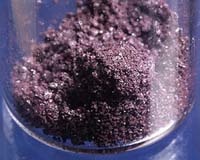 |
Western Bank, UK (SPX) Nov 05, 2010 A new breakthrough by scientists at the University of Sheffield has shed light on how the Earth's first plants began to colonise the land over 470 million years ago by forming a partnership with soil fungi. The research, published Nov 2, 2010, in Nature Communications, has provided essential missing evidence showing that an ancient plant group worked together with soil-dwelling fungi to 'green' the Earth in the early Palaeozoic era, nearly half a billion years ago. The research, which also involved experts from the Royal Botanic Gardens, Kew, Imperial College London and the University of Sydney, has provided new insights into our understanding of the evolving dynamic behaviour of the Earth's land plants and fungi. Scientists have long-suspected that soil fungi formed mutually beneficial relationships with early land plants to play an essential role in assisting their initial colonisation of terrestrial environments. However, until now there has been a lack of evidence demonstrating if and how the earliest ancient land plants, from the early Palaeozoic era (over 470 million years ago), might have cooperated with fungi for mutual benefit. The team studied a thalloid liverwort plant, which is a member of the most ancient group of land plants that still exists and still shares many of the original features of its ancestors. They used controlled-environment growth rooms to simulate a CO2-rich atmosphere, similar to that of the Palaeozoic era when these plants originated. This environment significantly amplified the benefits of the fungi for the plant's growth and so favoured the early formation of the association between the plant and its fungal partner. The team found that when the thalloid liverwort was colonised by the fungi, it significantly enhanced photosynthetic carbon uptake, growth and asexual reproduction, factors that had a beneficial impact on plant fitness. The plants grow and reproduce better when colonised by symbiotic fungi because the fungi provide essential soil nutrients. In return, the fungi also benefit by receiving carbon from the plants. The research found that each plant was supporting fungi that had an area of 1-2 times that of a tennis court. Professor David Beerling, from the Department of Animal and Plant Sciences at the University of Sheffield, said: "By studying these ancient plants we open a window on the past to investigate how the earliest land plants evolved. Our results support the idea that the 'greening' of the Earth was promoted by a symbiosis between plants and fungi. It shows that plants didn't get a toe-hold on land without teaming up with fungi - this has long been suspected, but until now not investigated. It will require us to think again about the crucial role of cooperation between organisms that drove fundamental changes in the ecology of our planet." Martin Bidartondo from the Jodrell Laboratory at the Royal Botanic Gardens, Kew, said: "Fungi are present in every type of habitat throughout the world and are essential for many plants to grow. It is exciting that we are now beginning to discover the fungi associated with 'lower' plants, and that many more still remain to be investigated." Citation: 'Mutualistic mycorrhiza-like symbiosis in the most ancient group of land plants' Claire P. Humphreys , Peter J. Franks , Mark Rees, Martin I. Bidartondo, Jonathan R. Leake and David J. Beerling.
Share This Article With Planet Earth
Related Links University of Sheffield Explore The Early Earth at TerraDaily.com
 Phosphorus Identified As The Missing Link In Evolution Of Animals
Phosphorus Identified As The Missing Link In Evolution Of AnimalsEdmonton, Canada (SPX) Nov 04, 2010 A University of Alberta geomicrobiologist and his PhD student are part of a research team that has identified phosphorus as the mystery ingredient that pushed oxygen levels in the oceans high enough to establish the first animals on Earth 750 million years ago. By examining ancient-ocean sediments, Kurt Konhauser, student Stefan Lalonde and other colleagues discovered that as the last glac ... read more |
|
| The content herein, unless otherwise known to be public domain, are Copyright 1995-2010 - SpaceDaily. AFP and UPI Wire Stories are copyright Agence France-Presse and United Press International. ESA Portal Reports are copyright European Space Agency. All NASA sourced material is public domain. Additional copyrights may apply in whole or part to other bona fide parties. Advertising does not imply endorsement,agreement or approval of any opinions, statements or information provided by SpaceDaily on any Web page published or hosted by SpaceDaily. Privacy Statement |